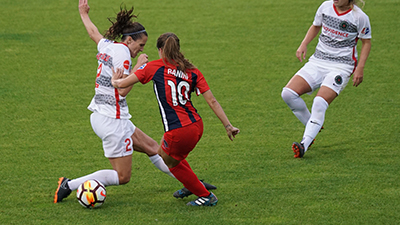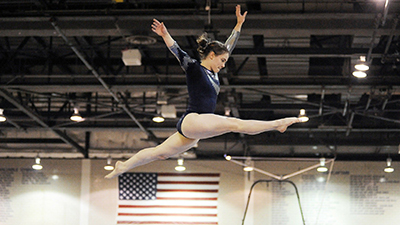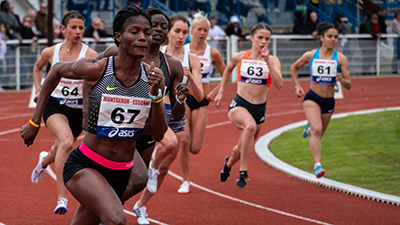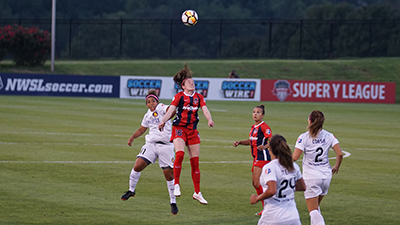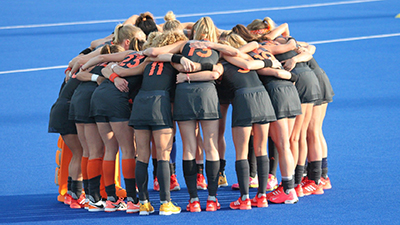Women's Sports Medicine Program: Clinical Care
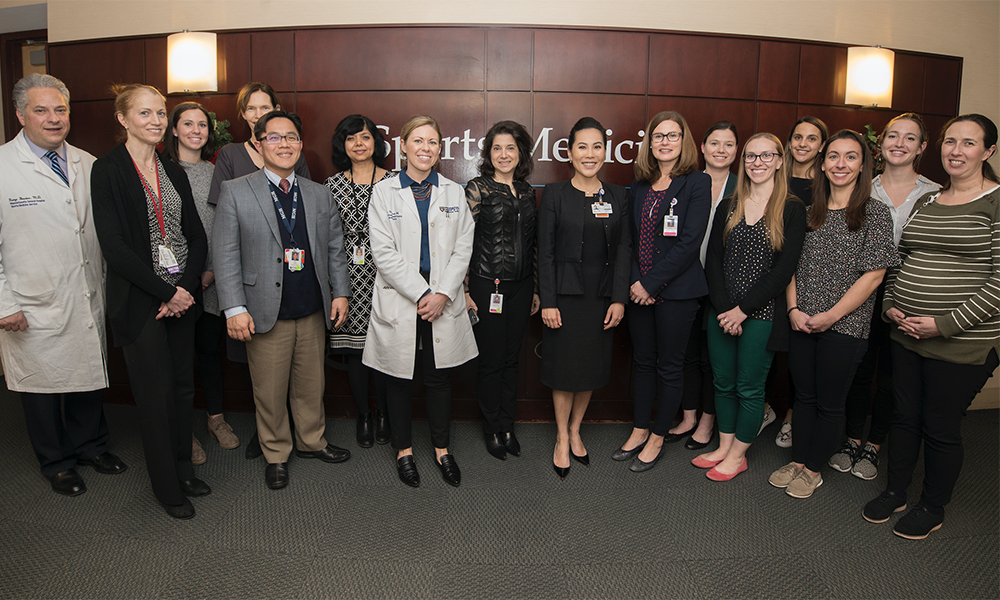
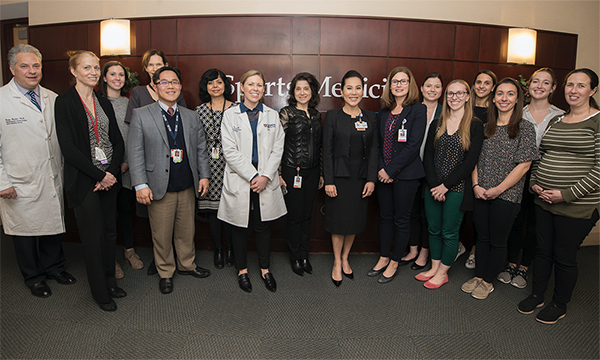
Why do we need a Women’s Sports Medicine Program?
Female athletes have unique attributes that can make their sports medicine needs different from those of male athletes. Our multidisciplinary team provides comprehensive, cutting-edge care that incorporates expertise from multiple areas.
Female athletes are 4-8 times more likely to tear their ACL than males.
Muscle imbalances and specific movement patterns can cause females to be at greater risk for injuries, but this risk can be lowered.
Disordered eating is a common problem in female athletes.
Whether intentional or not, alterations in diet and energy availability can lead to serious metabolic consequences that can result in bone injury and subsequent medical conditions.
Pregnancy is a unique challenge for female athletes.
With growing knowledge about the safety of training during pregnancy, our multidisciplinary team helps guide the treatment of sports medicine injuries in the peripartum period.
Are women's hearts different than men's hearts?
Cardiovascular considerations and performance measures in exercise tolerance are different in female and male athletes.
Concussion symptoms vary between males and females.
Females appear to be more likely to suffer from prolonged symptoms after sustaining a concussion when compared to males.
Can hormones play a role in sports injuries?
Hormonal changes can influence certain musculoskeletal conditions. Changes in energy availability can also cause hormonal alterations.
Contact the Women's Sports Medicine Program
We aim to lead the advancement of women’s sports and exercise medicine through multidisciplinary expert clinical care, research and education.

